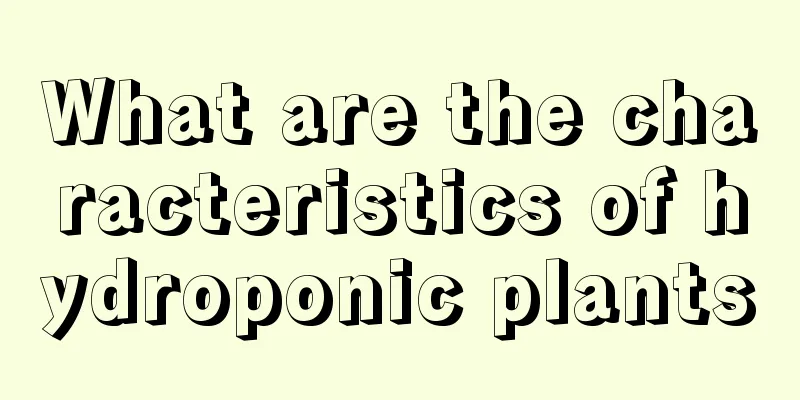What are the characteristics of hydroponic plants

advantageCleanliness and hygieneHydroponic flowers grow in clear and transparent water, without soil and traditional fertilizers. They will not breed viruses, bacteria, mosquitoes, and have no odor. Highly ornamentalHydroponics enables the co-rearing of flowers and fish, with red flowers and green leaves on top, fibrous roots floating below, and fish swimming freely in the water. The three-dimensional planting looks novel and beautiful. Easy maintenanceIt is very simple to grow hydroponic flowers. You only need to change the water once every half a month or a month and add a few drops of nutrient solution. A box of nutrient solution can be used for one to two years. Save time, trouble, money and worry! Convenient for combined cultivationVarious hydroponic flowers can be cultivated in random combinations like fresh flowers, and can grow for a long time to form exquisite works of art. Plants of different colors and flowering periods can also be combined into four-season bonsai. Hydroponic flowers can be planted one by one in a pot like ordinary flowers, or they can be combined into potted works of art. Regulating the climatePlacing hydroponic flowers or hydroponic vegetables in the room can increase the indoor air humidity, regulate the climate, improve mood, and benefit physical and mental health. Disadvantages and limitationsThe hydroponic range is narrowHydroponic flowers mostly choose negative and neutral flowers suitable for indoor cultivation. They have different requirements for light. Plants that are not suitable for hydroponics cannot grow. Most hydroponic plants require long-term induction and domestication before they can adapt to the hydroponic solution environment of soilless cultivation. Easy to rotIn the maintenance process of hydroponic flowers, the most fatal defect is root rot, such as root damage caused by washing, too high or too low temperature, too high nutrient solution concentration, diseases and insect pests, etc. Root rot will cause the water quality to deteriorate and affect the growth of the plant, breed a large number of microorganisms and bacteria, cause contamination of the hydroponic solution and lead to the death of the entire plant. |
<<: How to hydroponically cultivate Guangdong Evergreen
>>: Can the succulent plant Yamato Kinkaku be hydroponically cultivated?
Recommend
The difference between apple mint and catnip
1. The difference between them in floral fragranc...
What to do if the leaves of the golden diamond plant curl up and do not unfold
1. Adjust the watering method 1. Specific reasons...
How does the fire-breathing dragon survive the winter?
1. Exposure to sunlight The sunlight outside in w...
How to grow Ficus microcarpa
1. Breeding environment 1. Soil: When breeding, y...
What are the cultivation methods and precautions of hydrangea?
Hydrangea cultivation method Hydrangea prefers a ...
When should pepper trees be planted?
Zanthoxylum bungeanum can grow in a variety of en...
How to fertilize potted green radish in winter
1. Methods Because the temperature in winter is v...
How many days does it take for coriander to germinate? How to plant coriander so that it germinates quickly and well?
How long does it take for coriander to germinate?...
Can lucky bamboo absorb formaldehyde?
1. Can formaldehyde be absorbed? 1. It can absorb...
How to prune keel flowers
When to prune keel flowers Dragon bone flowers ca...
What is the best fertilizer for loquat trees?
Loquat tree fertilization time Young loquat trees...
What vegetables are suitable to grow after the Chinese New Year?
What vegetables are suitable to grow after the Ch...
How to plant oil sunflower and planting time and method
Oil sunflower growth environment requirements Sun...
How to make lilies grow short and strong? What to do if they grow too tall?
1. How to grow short and strong 1. Maintenance an...
How to save sweet corn seeds How to save corn seeds yourself
How to save sweet corn seeds Sweet corn has seeds...









